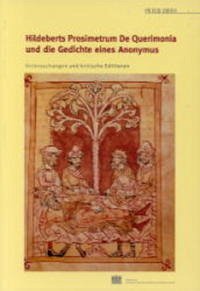Nicht lieferbar

Hildeberts Prosimetrum De Querimonia und die Gedichte eines Anonymus. Untersuchungen und kritische Editionen.
Versandkostenfrei!
Nicht lieferbar
Hildeberts Prosimetrum De Querimonia und die Gedichte eines Anonymus. Untersuchungen und kritische Editionen.



